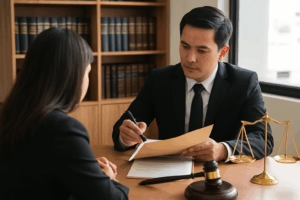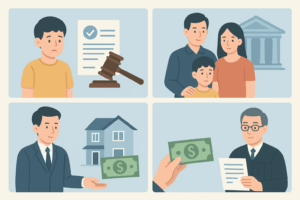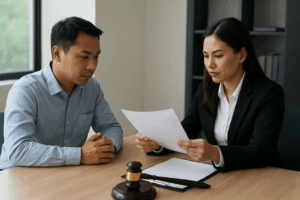Thailand, often referred to as the Land of Smiles, is not only a tourist destination but also an emerging market in Southeast Asia. This makes it a magnet for professionals and entrepreneurs seeking opportunities. If you are a foreigner intending to work in Thailand, obtaining a work permit is critical. Here’s an exhaustive guide to the do’s and don’ts of applying for a work permit in Thailand.
Introduction
A work permit acts as a legal authorization which grants foreigners the permission to work in Thailand. Being aware of the intricacies involved is vital to ensure a smooth process.
The Prerequisites for Eligibility
Be a foreign national with permission to enter Thailand temporarily under immigration law (not as a tourist or transit traveler).
Must not be seeking employment in a field forbidden by Thai law.
For nationals from Cambodia, Laos, and Myanmar, only labor and domestic work are permitted. Vietnamese nationals can only engage in construction and sea fishing.
The Absolute Don'ts
- Medical Restrictions: Applicants should not have medical conditions such as tuberculosis, elephantiasis, drug addiction, alcoholism, or third-stage syphilis.
- Legal Constraints: Those who have been imprisoned under immigration law or foreign worker law within one year prior to applying are ineligible.
The Application Process
Step 1: Where to Apply
Choose an employment office located in the area where you plan to work. Thailand boasts 76 provincial employment offices, in addition to the Bangkok Employment Office.
Step 2: Submitting the Application
Present your application along with the required documents to the employment office.
Step 3: Evaluation and Approval
The Registrar will assess your application. If it meets all criteria, they will approve and sign your work permit.
Step 4: Pay the Fees
Pay the issuance fee of 100 baht. The license fees vary between 750 baht and 3000 baht. For Cambodian, Laotian, Myanmar, and Vietnamese nationals, it ranges from 225 baht to 900 baht.
Step 5: Obtain Your Work Permit
You will receive your work permit within three working days after your documents are verified and deemed complete.
Additional Tips
- Double-Check Your Documents: Ensure all documents are complete and up-to-date. This includes your resume, certificates, and a letter from your employer. Avoid giving false information as this could lead to a rejection.
- Comply with Employment Restrictions: Research the list of occupations restricted to Thai nationals and ensure your chosen field is not among them.
- Be Patient and Follow Up: The process can sometimes take longer than expected. Politely follow up with the employment office without being overly persistent.
- Seek Legal Assistance: If you find the process overwhelming, consult a legal adviser or visa agency that specializes in Thai work permits.
- Plan Ahead: Begin the work permit application process well in advance. This gives you ample time to gather all necessary documents and address any issues that may arise.
Conclusion
Acquiring a work permit in Thailand is an intricate process that requires attention to detail and compliance with legal regulations. Being meticulous with your application and respecting Thai laws will put you on the right track. With your work permit in hand, you can now legally embark on your professional journey in the enchanting Land of Smiles.
If you have any queries or need assistance with your application, please do not hesitate to reach out to us. Our team of experts is dedicated to providing the support you need to make your dream of working in Thailand a reality.
Welcome to a country of opportunities and rich cultural experiences!
Contact : Siam Center Law Group by calling +66(0) 2 648 5041, +66(0) 2 648 5042





